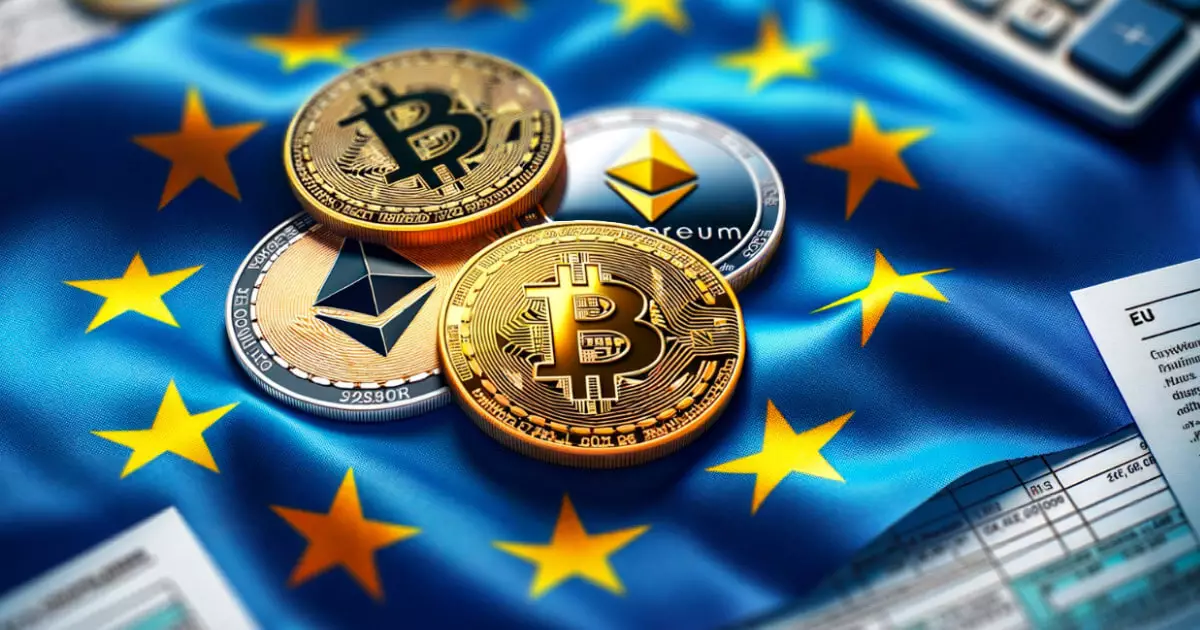The Council of the European Union (EU) has recently taken a significant step in enhancing cooperation amongst national taxation authorities in relation to crypto-assets transactions. This move signifies a proactive approach by the EU towards the rapidly digitalizing economy. Through the adoption of a directive, the EU aims to fortify the existing legislative framework and improve administrative collaboration among tax administrations.
Comprehensive Amendments to EU Rules
The directive incorporates comprehensive amendments to EU rules on administrative cooperation on taxation. One of the main objectives is to broaden the scope for registration and reporting obligations, with a particular focus on the inclusion of additional categories of assets and income, specifically crypto-assets. Recognizing the challenges posed by the decentralized nature of crypto-assets, the EU believes that robust international administrative cooperation is essential for effective tax collection.
A key feature of the new regulations is the mandatory automatic exchange of information between tax authorities. Crypto-asset service providers will be required to provide this information to ensure tax compliance. This step is crucial due to the cross-border nature of crypto-assets, which necessitates international cooperation and coordination.
The directive covers a wide range of crypto-assets, including those issued in a decentralized manner, stablecoins, e-money tokens, and specific non-fungible tokens (NFTs). By encompassing diverse categories of crypto-assets, the EU aims to create a comprehensive framework for taxation and regulation in this rapidly evolving sector.
Aligning with Economic Governance Principles
In addition to addressing tax compliance, the directive also aligns with the economic governance framework of the EU. This framework encompasses standard rules for national fiscal and monetary policies that apply to all member states. Its primary objectives are to ensure the sustainability of public finances, promote convergence, and address macroeconomic imbalances. By strengthening the regulatory framework for crypto-assets, the EU seeks to reinforce the economic and monetary union and pave the way for sustainable growth and fiscal responsibility.
Achieving Balanced Agreement
The EU is committed to reaching a balanced agreement before the end of the year. According to Nadia Calviño, the acting Spanish first vice-president and minister for economy and digitalization, this move is crucial for reinforcing the economic and monetary union and facilitating sustainable growth. It reflects the EU’s commitment to addressing tax issues and adapting its regulatory framework to the evolving digital economy.
The Council’s report to the European Council in December 2021 set the groundwork for the adoption of this directive. It called for the European Commission to introduce a legislative proposal in 2022 to further revise the directive 2011/16/EU on administrative cooperation in taxation to address the exchange of information on crypto-assets and tax rulings for wealthy individuals. Member states unanimously agreed to the proposed changes to the directive in the Council, following the European Parliament’s opinion during the consultation process in September.
The EU’s adoption of this directive marks a significant step towards regulating crypto-assets and enhancing tax compliance. By broadening the scope of taxation regulations and promoting international administrative cooperation, the EU aims to ensure effective tax collection and foster a sustainable and responsible digital economy. The directive’s comprehensive approach and alignment with economic governance principles demonstrate the EU’s commitment to adapting its regulatory framework to the evolving needs of the digital era.

